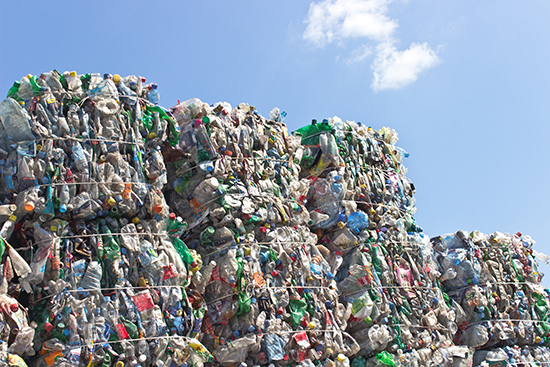If a survey was conducted today asking people to choose just one thing that in their opinion is harming our planet the most, it would be safe to say that plastic will be mentioned by most of us. Plastic in its various forms has been in our lives since for the last 70 years and, no matter how hard we try, we are unable to get rid of it. It is so deeply ingrained in our everyday lives that the best we can do is use responsible plastic: recycled plastic.
The Dutch government started working on recycling measures as early as the 1980s. Municipalities were made responsible for waste collection and separation; the cost paid by citizens differed by municipality. Since 1994, municipalities were obliged to provide an infrastructure for the separate collection of glass, paper and textiles and since January 2010, they are obliged by law to collect plastic packaging separately. The government intensified its measures by applying a landfilling tax in 1995; an incineration tax was introduced in 2000.
So far, all methods seemed to be working, even though the Dutch were meeting only 50% of their recycling goals, instead of 65%. Until recently, the Netherlands conveniently shipped 95% of its plastic to China for processing. However, in 2018 China saw the error of its ways; their country was overwhelmed by pollution which it was not directly responsible for. Most of the plastic coming its way was low-quality and contaminated by food waste. China implemented a cut-off on all imports but the cleanest and highest grade – set at 99.5% purity standard. Many other South-east Asian countries tried to pick up some of the slack, but they were also soon overwhelmed and cut back on plastic imports.
The problem with recycling plastic is the shortage of good-quality recycled plastic. Processors of recycled plastic require large quantities of plastic, manufactured to strictly controlled specifications and at a competitive price, in order to produce new plastics. However, since plastics are easily customized to the needs (functional or aesthetic) of each manufacturer, the diversity of the raw material complicates the recycling process, making it costly and affecting the quality of the end product. In consequence, the demand for recycled plastics accounts for only 6% of plastic demand in Europe.
In 2018, European Commissioner Frans Timmermans presented his ‘Green Deal’ with plans to make Europe fully climate-neutral by 2050. Companies faced increasingly binding rules for this. For example, packaging must be fully recyclable by 2030 and part of the product must consist of recycled plastic.
But according to Philips, Shell, AkzoNobel, Heineken, DSM, Friesland Campina and KLM there is insufficient supply of good-quality recycled plastic to comply with these rules. “When you recycle, the quality usually decreases,” says Unilever CEO Annemarieke de Haan. “Innovation is needed to get more plastic of better quality, but the financial incentives are lacking. It is absurd that recycled plastic is currently more expensive than new.”
It’s sort of a chicken-and-egg story. While the government has ambitious plans and is asking the big multinationals to be more effective in their recycling endeavours, the companies say that they need effective legislation and better collection systems. Waste collection systems vary so much from municipality to municipality that recycling waste becomes difficult and using recycled plastics ends up being much more expensive than using new material. Parliament is already asking for a tax on plastic. It argues that companies must agree to this increase in cost and absorb it as a part of their own recycling goals.
This much is clear: we need better standards for plastic, and government intervention is required, sooner rather than later. New plastic must be of high quality and should be 100% recyclable. The big companies seem to have the same idea. A couple of years back, eleven multinationals, including Coca-Cola and Unilever, promised at the World Economic Forum in Davos to produce their packaging in such a way that it is fully recyclable by 2025. We will have to wait and see whether these companies will come through on their promises. If some drastic measures are not taken very soon, in the fairly near future, we all might find ourselves in a not-so-shallow plastic grave.
Written by Priyanka Sharma
